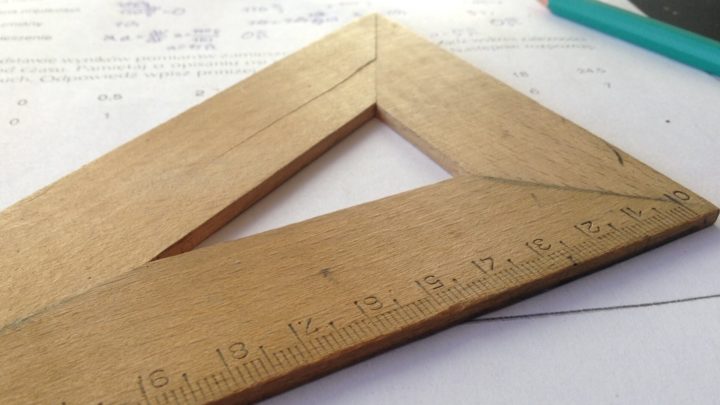When a film has great sound, you never notice it. When a film has terrible sound, you can’t notice anything else. The production sound mixer, is the responsible for making sure that never happens.
They lay the foundation for future sound technicians to make the film’s sound come to life.
Want to be the person under those headphones?
The Sound Mixer Job Description

A production sound mixer at his command center
Those of you who work in the music industry, perhaps with an idea towards jumping into film and television, may think you already know what a mixer is.
But what a mixer is in music is very different from what a mixer is in film.
Production sound mixers (sometimes called the location sound recordist or location sound engineer,) are sound engineers who manage the location sound recording of sound on a film.
Many have actually attended audio engineering school, but couldn’t give up their love of film and television.
Despite the name, they don’t actually do any mixing on set, making them different from the sound engineers of the same name in the music industry.
Instead, the production sound mixer is responsible for recording all on-set and on location sound.
They are primarily concerned with ensuring that each actor’s performance is captured clearly on separate tracks, without background noise contaminating it.
A sound editor will combine all these elements, including sound effects, foley, and soundtrack music, into the final audio track during the post-production process.
But without clear location sound, that job can become increasingly difficult. And increasingly expensive.
It starts on the tech scout. The sound mixer checks every location for potential sound problems and plans what equipment and set-ups will be needed.
Once they’ve set up the microphones on set, the sound mixer has to keep their ears open while recording the sound for anything that might be wrong, such as a malfunctioning microphone or passing traffic.
It’s not all technical, though. As a department head, the sound mixer is also responsible for the hiring and supervision of the boom mic operator and the utility sound technician, which requires good managerial and communication skills.
What are The Skills and Tools of a Sound Mixer?
While the sound mixer may seem similar to the cinematographer, it’s a much more technical position.
You have to be a team player, but before you can even worry about that, you need to worry about your understanding of sound.
1. DEvelop technical savvy
An aspiring sound mixer must have good technical skills. Sound mixers are still sound engineers at the end of the day.
You need to master the tools of the sound trade -- boom microphones, headphones, mixing desks. You also need to understand the tools and techniques used to keep the microphones out of sight.
It’s not as simple as keeping the boom mic out of frame, though.
A lavalier microphone might accidentally pick up an actor’s heartbeat. A shotgun microphone might pick up unwanted wind noise. The wrong volume levels might distort the actor's performance.
Because of this, the number one required technical skill is a general understanding of how sound operates. How it moves, how it reflects off of objects, and how microphones pick it up.
You won’t be working with easy, obvious set-ups, and often times the solution is not as simple as adding an extra boom microphone.
As the shoot grows more complex, you’ll need to get creative, and you can only really get creative if you know how the sound will pick up before you plug in your first microphone.
Especially when explosions, car chases, and a flaming guitar are all involved.
Mad Max: Fury Road (2015) won the Oscar for Best Sound Mixing
Whether this is mastery of sound is learned at an audio engineering school or on-the-job training, it is essential.
What is also essential is the mastery of another kind of sound.
2. Manage Your Crew
A sound mixer is a department head role. They need to be able to communicate their orders to the sound crew working beneath them.
They have to make it clear to the boom mic operator exactly where the important conversation is happening. Or explain to the UST where the hidden microphones need to be positioned.
What’s really important to remember here is that while the buck ultimately stops with you, you do not know everything.
If you have a frustrating shoot to mic, listen to the suggestions of the people you hired. Presumably you hired them because you recognize their talent and experience.
3. Work with Your Equals
But a sound mixer is but one department head among many. While you’re focused on the sound, they’re focused on other equally important elements. You must learn to compromise.
The first assistant director can’t be breaking up your fights all the time.
You might need to work with the costumed designer to ensure a lav microphone can be hidden underneath a shirt, or discuss the placement of an essential, but noisy, generator with the gaffer.
Of course, there’s one person you must be able to talk to above all.
3. Take Criticism and Direction
The bulk of the creative aspects of a film’s sound occur in post production. Sound engineers, SFX and foley artists, and composers will all make the film come alive long after you’ve gone.
But none of that matters if there isn’t a good, clear sound track for them to build off of.
Thus the sound mixer’s job is thus focused more on clarity rather than creative interpretation of what the director wants.
There are, of course, exceptions.
For example, Wes Anderson chose to record the voice overs for “Fantastic Mr. Fox” in the wild for a naturalistic sound.
Not every film can have the sound engineering of Fantastic Mr. Fox (2009)
Still, it is essential for a sound mixer to have a good working relationship with the director.
Not just to ensure they understand the necessities of the director’s vision. But to make sure the director understands the needs of the sound mixer.
The director may want to move on to the next, exciting scene. But if there’s something wrong with the location sound, it’s your job, as the head sound engineer to chime in.
4. Assemble the Tools of the Trade
Like make-up artists and gaffers, sound mixers are often expected to provide their own equipment. Eventually you’ll want to build your own.
Your basic kit should include:
- A sound recorder
- A sound mixer
- Smart slate
- A shotgun mic
- A boom pole
- Wireless lav microphones
- Shock mounts
- Windscreens
- A GREAT set of headphones
- A battery kit
- A harness
Some productions will rent their sound packages from rental houses like Location Sound Corp in North Hollywood.
But at a certain point in your career, you’ll want to cut out this middleman and have the producers rent their production sound mixer equipment directly from you, the production sound mixer.
Now that you’ve attended audio engineering school and assembled your kit, it’s time to become a professional.
It’s time to get your first job.
How to Become a Working Sound Mixer
While there is no one set path to becoming a production sound mixer, it usually follows a path like this:
1. Attend Audio Engineering School
Technically speaking, there is no degree requirement for working as a sound mixer.
However, it is a ultimately a form of sound engineering. As a result, it might benefit you to attend audio engineering school.
Sound engineers are employed in other entertainment industries, including music and radio. As a result, there are reputable audio engineering schools all over the country.
Some film schools, such as the Los Angeles Film School, offer specialized sound engineer course.
In addition to the classes, audio engineering schools offer access to and practice on professional-grade tools it can be difficult to get anywhere else.
2. Get on Set
If you’re fresh out of school, the first thing you’re going to need is on-set experience. Any on-set experience.
You can also get started on set as a production assistant.
In between being the best PA that you can be, ask questions of the sound mixer and their crew. With any luck, they’ll remember you the next time they’re hired, and hire you for an entry level gig.
Hollywood is all about your connections. When you create a free account on ProductionBeast, enter your credits and we'll suggest you people you probably and (should) know!
3. Join the Sound Crew
Your first paid sound engineer job? Is probably not going to be as a production sound mixer.
Film sets are very hierarchical. Most sound mixers have done time as a boom mic operator or a utility sound technician. Quite a bit of time, in fact. Some sound mixers will even do boom work for larger productions while building a reputation on smaller shoots.
While this may seem humble, it is an amazing educational opportunity. Audio engineering school will take you far, but few things beat on the job training.
Many of these are entry level jobs, so very little experience is required. That being said, if you’ve spent time as a production assistant, or even worked on a student film in college, you’ll have a leg up on the competition.
4. Search Job Sites for Sound Mixer Jobs
Of course, you didn’t go to sound engineering school to hoist boom mics. You went to work as a sound mixer.
The first thing to know is that unlike cinematographers, production sound mixers do not have reels or portfolios. You are a technician. If the sound is collected as cleanly as possible, you have done your job correctly.
That being said, your first sound mixer job will likely not be a paid one. Or at least, not a well paid one.

Ah, the lucrative life of a production sound mixer.
At some point, you have to prove you have the chops to take the big job, and one of the best ways is to take the job on a smaller independent shoot.
As long as you do your job right, and the sound is a crisp and perfect as a New England Autumn day, you can put it on your resume.
And once you’ve successfully done it for free, people will start to believe you can do it for money.
You can look for open shoots on ProductionBeast, but you should also put the word out that you’re looking for a shoot to mix on. Filmmaking is a competitive world, and getting the early tip from a friend or mentor can make all the difference.
5. Assemble a Crew
On your earliest sound mixer jobs, you are your own crew. You hold the boom mic, you apply the lavs, you record the mix.
Sometimes all at once.
No one said the film and television business was easy.
Eventually, though, you’ll be responsible for a team of operators and technicians, and it will be your responsibility to hire them.
Hopefully you’ve been making friends and already have a rolodex of friends you can call.
But if you need to fill out your team, you can search for experts on Production Beast, post your own job listings, or using the team builder tools, create a stable of sound engineers you know and trust.
What’s a Sound Engineer’s Salary?
Sound Mixers, like most on-set jobs, get paid by the production instead of annually. Mic more productions and, naturally, you’ll get paid more.
Non-union jobs are subject to the whims of the market and what you can negotiate. This shouldn’t just be based on your experience, but how difficult the shoot is going to be.
It’s important to study the script and the script breakdown carefully. If they need to capture dialogue in the middle of a fist fight, that should cost more.
A good way to determine your own day rate is to examine the rates of your fellow technicians. You can use other sound engineer’s salaries to determine your own as the market shifts.
Union shoots are a different story. Find yourself on a major Hollywood blockbuster and you’ll making thousands of dollars a day.
A location sound engineer salary averages out to about $50,000 annually when all is said and done. That is, of course, only an average. You might make more or you might make less.
It all depends on how much you work, how much experience you have, and whether you’re part of the union.
Should I Join the Union?
All location sound engineers are represented by IATSE Local 695 in major negotiations with the studios. And yes, you should join it.
Joining the Local 695 is a simple matter of proving you’ve worked 100 days in the appropriate role you’re applying for within the last three years, submitting your application, and paying your membership fee.
Arguably the greatest benefit gathered from joining this brotherhood of sound engineers is access to their healthcare plans and pension funds.
You know, for when you’re too old to hold a boom mic over your head for twenty minute stretches.
The other major benefit, though, is that you are now subject to the Basic Minimum Agreement pre-negotiated by the 695.
If you can negotiate for more, of course, you’re welcome to. But it’s nice to know there’s a floor.
Of course, being a member of the brotherhood means you must act along with the brotherhood. You go on strike when they say to go on strike
The Importance of Sound Engineering
The sound mixer’s job is highly technical, rarely creatively artistic. It is often forgotten, because of that.
But as anyone who’s attended a student film festival can attest, there are few things more painful than a movie with poor sound.
Professional sound mixers -- here’s the strangest place you’ve hidden a microphone? Start a conversation in the comments below.
Like this post? Share it!
"Quiet on the Set! How to Snag a Production Sound Mixer Job" #filmmaking #filmmakers






